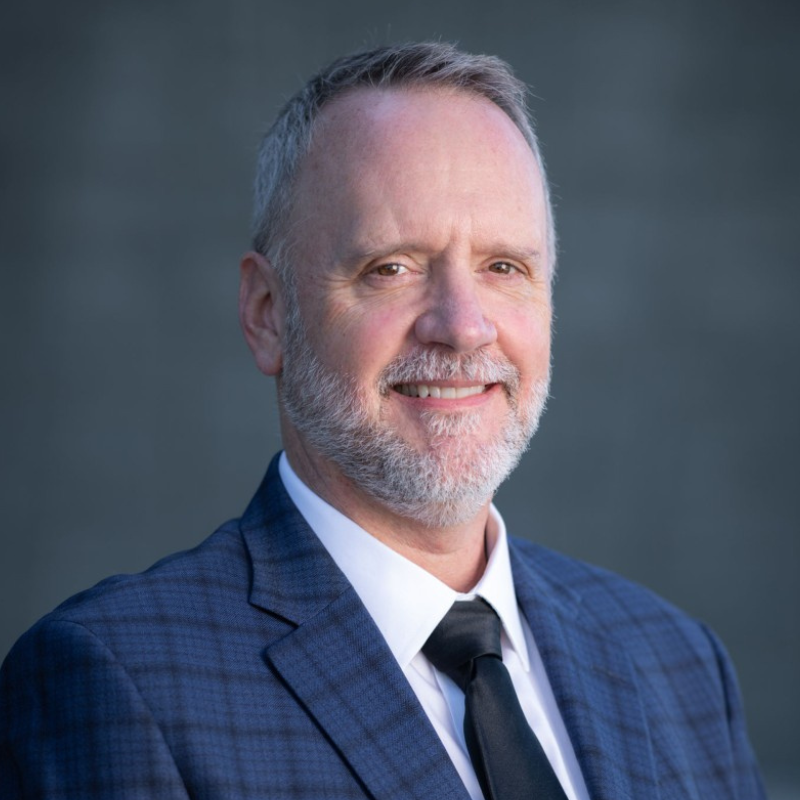apartmentApply to Osborn Pointe! Learn more about this 55+ community in Phoenix - NOW LEASING!

We're excited to share this insightful interview Q&A with Native American Connections' chief operating officer, John Godfrey.
Q. Tell us a bit about yourself?
Well, I’m originally from upstate New York and moved to Arizona in 1990 after college. I met my wife here in 1994 and we have two grown children, a girl and a boy. My daughter is in Medical School at U of A and my son is working in tech in San Francisco. I obtained my master’s degree in counseling from ASU and have been working in Behavioral Health field for 34 years. Most of my career has focused on healthcare administration.
Q. Who inspired you to pursue the career you have today?
It wasn’t one person really, more like a group of people. It seemed like in high school people would tell me their problems and ask me for advice. I thought, well, there must be something about me that makes people feel comfortable sharing things. I also took a psychology class and thought it would be an interesting career. As I got into the field, I found out that I was better at the business side of behavioral health and that’s where I put my focus.
Q. What brings you to work at NAC?
My last position was with the Salt River Pima-Maricopa Indian Community as their Chief Behavioral Health Officer at the River People Health Center. I worked for the tribe for 12 years and decided I needed to move on and contribute to another organization. I have a passion for Native health and want to make an impact on the lives of the people served by NAC. This was a perfect fit for me.
Q. What does the COO do for NAC?
My job is to support the operations and help the CEO fulfill her vision for the company. I currently oversee behavioral health, primary care, homeless housing, and IT. My focus right now is increasing revenue and providing structure to the organization. That includes anything from identifying new funding streams, improving business processes, and increasing employee engagement and retention.
Q. What keeps you motivated at work?
I think just knowing that the work we do is so important. I try and provide the structure for employees to serve individuals in the best way possible. My job is to remove barriers to success and allow our employees to provide excellence in service of our mission.
Q. In terms of success, which career accomplishment are you most proud of?
I think that would be organizing the COVID 19 vaccine rollout at Salt River. I oversaw getting tribal members vaccinated by setting up a drive through clinic on the reservation. We gave out thousands of shots and I do believe saved lives as a result. I’m most proud of getting many high-risk patients to sign up and get vaccinated. There are a few times in your career that you can say for sure that you made a difference, but I believe that was one time for me.
Q. What is something you enjoy outside of work?
I think one of my favorite things to do is listen to music. I always have music on at home and it drives my wife crazy. She makes me put headphones on, which is fine, until I start singing out loud. It clears my head and gives me some peace. I think you need that working in a stressful field.
Our traditions are the foundation of our organization - explore, learn, and utilize resources available for all.

Get the support you need with health, housing, and community services available at Native American Connections.

Your support changes lives and builds healthy communities. Find ways to get involved.

A "chronically homeless" individual is defined to mean a homeless individual with a disability who lives either in a place not meant for human habitation, a safe haven, or in an emergency shelter or in an institutional care facility if the individual has been living in the facility for fewer than ninety (90) days and had been living in a place not meant for human habitation, a safe haven or in an emergency shelter immediately before entering the institutional care facility. In order to meet the ‘‘chronically homeless’’ definition, the individual also must have been living as described above continuously for at least twelve (12) months or on at least four (4) separate occasions in the last three (3) years, where the combined occasions total a length of time of at least twelve (12) months. Each period separating the occasions must include at least seven (7) nights of living in a situation other than a place not meant for human habitation, in an emergency shelter or in a safe haven.
Federal nondiscrimination laws define a person with a disability to include any (1) individual with a physical or mental impairment that substantially limits one or more major life activities; (2) individual with a record of such impairment; or (3) individual who is regarded as having such an impairment. In general, a physical or mental impairment includes, but is not limited to, examples of conditions such as orthopedic, visual, speech and hearing impairments, cerebral palsy, autism, epilepsy, muscular dystrophy, multiple sclerosis, cancer, heart disease, diabetes, Human Immunodeficiency Virus (HIV), developmental disabilities, mental illness, drug addiction, and alcoholism.